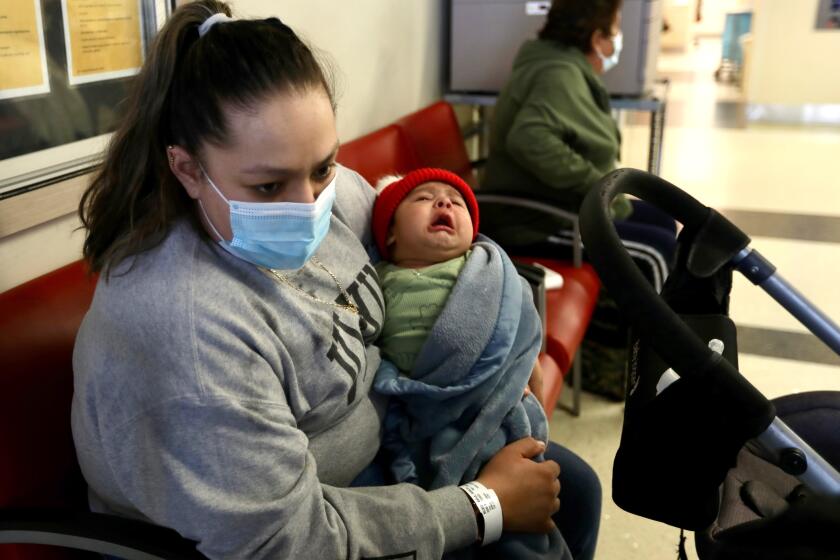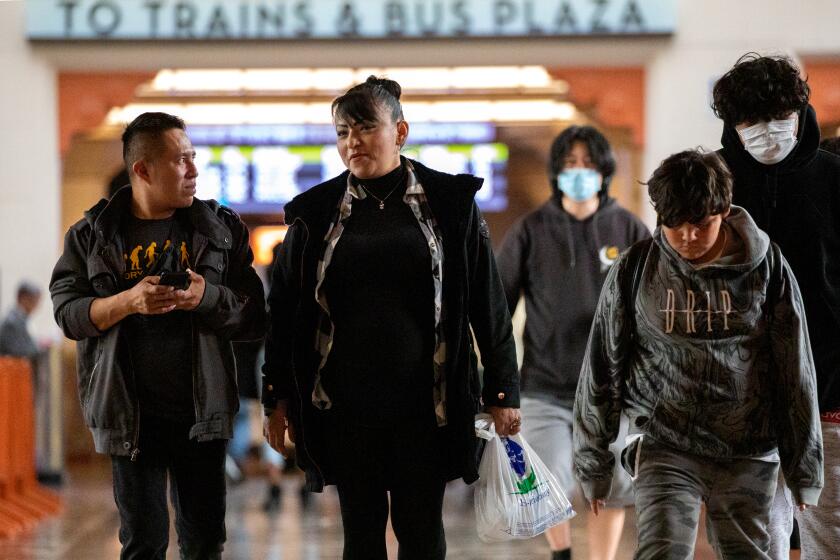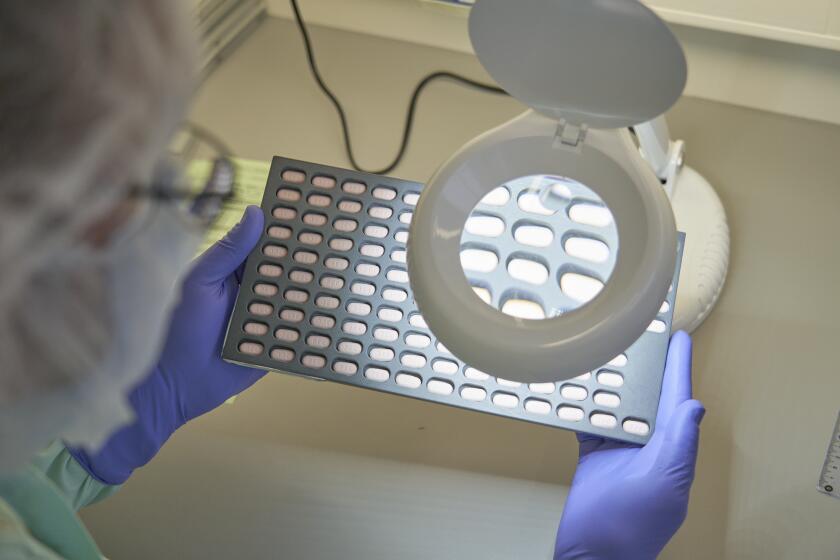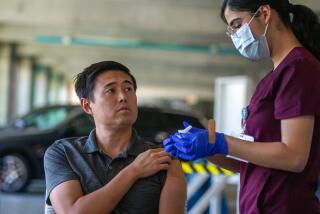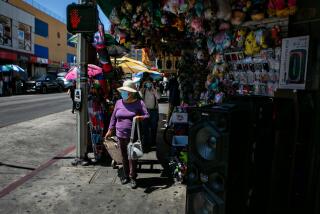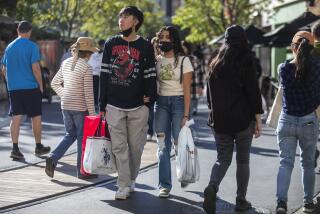L.A. County coronavirus threat eases for now, but a second wave after Christmas possible
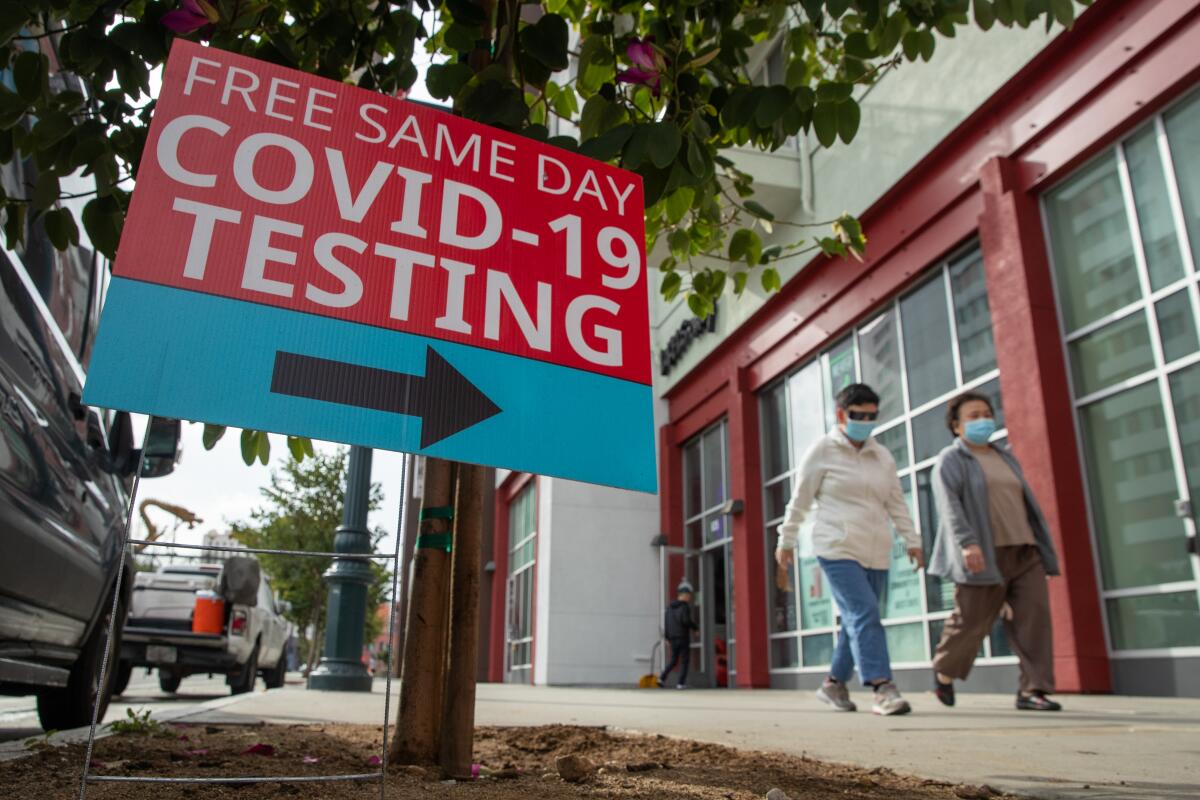
Coronavirus cases in Los Angeles County have stabilized, pushing off the prospect of a new indoor mask mandate shortly after New Year’s Day, but a second wave associated with Christmas and other gatherings remains possible.
L.A. County reported 2,911 coronavirus cases a day for the week that ended Friday, a 20% decline from the prior week. That’s a per capita case rate of 202 cases a week for every 100,000 residents. A rate of 100 or more is considered high.
Hospitalization rates have also stopped their relentless increase.
Public Health Director Barbara Ferrer said she considers the case and hospitalization rates for L.A. County plateauing, rather than representing a sustained decline. On Thursday, the U.S. Centers for Disease Control and Prevention said L.A. County hospitals were admitting about 14 coronavirus-positive patients per week for every 100,000 residents, down 4% from the prior week.
The shortage is from rising cases of COVID-19, flu and RSV, as well as patients who have put off nonemergency care.
Still, there remains a lot of viral transmission, which is evident in how coronavirus levels in L.A. County wastewater as of early December surpassed the peak of the summer Omicron surge, Ferrer said.
“I would say as we get closer to Christmas and Kwanzaa and there’s Hanukkah, winter solstice, we have a big World Cup this weekend, and I think that might drive another increase in our cases, but I don’t have a crystal ball. I think we just plateaued,” Ferrer said. “We’re not really going down significantly. But what we are not doing, right now, is not going up significantly on the cases.”
The recent improvements in case and hospitalization metrics spell a reprieve from the prospect of a local indoor mask order that could’ve taken effect as early as Jan. 6.
But Ferrer could not rule out a future mandate if transmission again begins to shoot upward yet again, potentially threatening the hospital system.
The coronavirus and the flu are surging in California. Here are the steps to protect yourself from getting sick during the holiday season.
“Now, we’ve kind of plateaued a little bit. I think we may increase again after Dec. 25 as more people are out of school, out of work, taking vacations, traveling and gathering. And I don’t have any way of knowing exactly how high that will go,” Ferrer said. “A lot of it depends on how many protections people are taking.”
Such protections include getting the updated booster shot, made available only since September. Statewide, 19.4% of eligible Californians have received the updated bivalent shot.
Health officials are also strongly recommending wearing masks in indoor public settings; getting tested for a coronavirus infection before attending gatherings; staying home when sick; and taking gatherings outdoors or at least in well-ventilated spaces. Officials are also urging more doctors to prescribe anti-COVID pills, like Paxlovid or molnupiravir, once a patient is known to be infected, and for patients to seek a prescription.
Drugs such as Paxlovid and molnupiravir are free and widely available, but officials say doctors are not prescribing them as much as they should.
Paxlovid can reduce the risk of severe illness or death from COVID-19 by almost 90%. Drugs like Paxlovid are free and widely available, but officials say some doctors are not prescribing them as much as they should.
Even as coronavirus cases drop, health concerns remain.
The number of available Los Angeles County hospital beds has fallen to its lowest level of the pandemic, the result not only of the enduring threat of COVID-19 and the reemergence of flu and RSV, but also the needs of a populace that put off non-emergency care.
More to Read
Sign up for Essential California
The most important California stories and recommendations in your inbox every morning.
You may occasionally receive promotional content from the Los Angeles Times.
